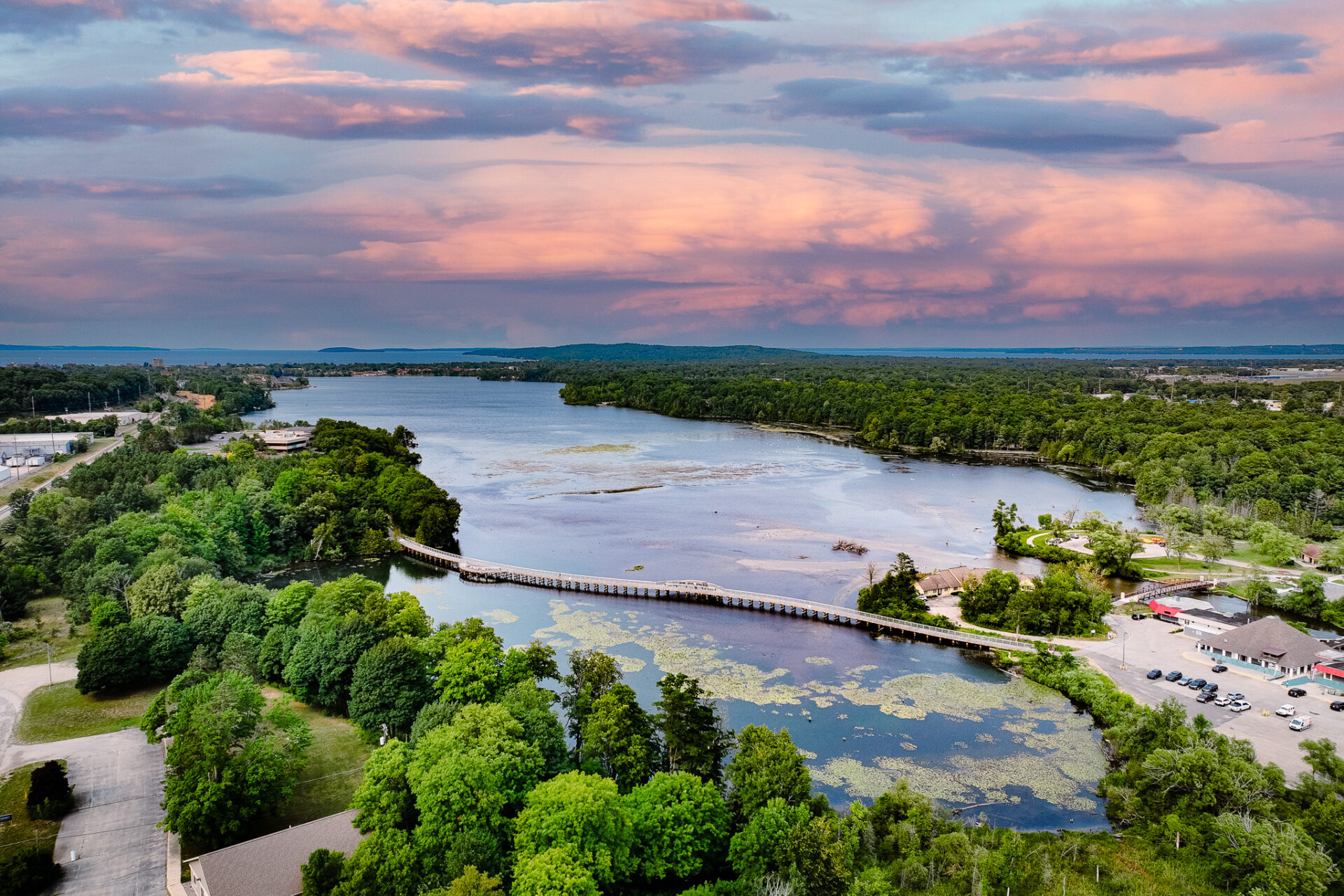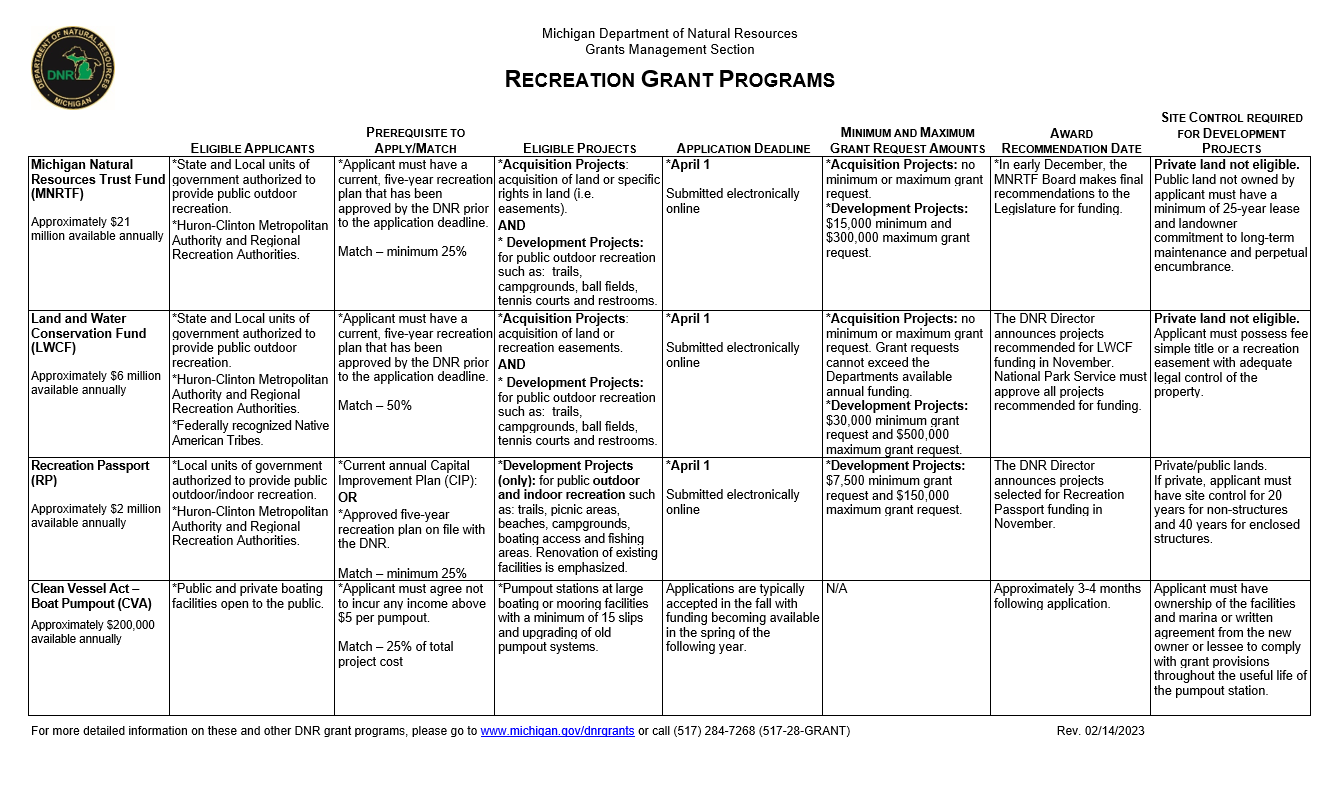Many of our clients have successfully implemented their parks and recreation projects with the help of 27 different grant programs from the Michigan Department of Natural Resources (MDNR). Our most common success stories have utilized the Natural Resources Trust Fund, the Recreation Passport Grant Program, and/or the Land and Water Conservation Fund. For example, the Boardman Lake Trail Loop project (featured above) made use of funding from some of these sources. Each of these funding opportunities has the potential to benefit your community!
So… tell me more!
The Natural Resources Trust Fund obtains finances from the development of state-owned, profitable resources. Applications are accepted from communities seeking to acquire land for the conservation of natural resources, which can include many opportunities from public facilities to trails. Matching funds are typically a requirement, and other deciding factors include financial need and regional significance. Before applying, the community also needs an established five-year recreation plan approved by the MDNR by February 1st. This master plan takes inventory of a community’s assets and rates their accessibility while gathering public input and developing goals, objectives, and a prioritized project plan. This month, the board recommended over 27 million dollars in these acquisition and development grants. The five-year recreation plan has proven to be enormously beneficial to communities in many other ways outside of just funding applications.
The Recreation Passport Grant Program is another excellent opportunity to fund parks and recreation projects. You’ve likely noticed that when you renew your driver’s license each year, you have the option to add the annual “recreation pass” for a low cost. You may know that this checkbox allows you to enter any state park without additional payment, but do you know where that money goes? It goes right back into your community’s recreation facilities. In addition to establishing new amenities, facilities that have been loved and used beyond their “useful life expectancy” are invited to be restored with this grant. Renovated facilities could include kayak launches, splash pads, restrooms, drinking fountains, pickleball and other sport courts, or pavilions. This month, it was announced that nearly $2 million in Recreation Passport grants were awarded for these park and trail improvements and developments. To be eligible for this program, a community must either have an approved five-year recreation plan on file by February 1st or submit a capital improvement plan with their application.
The Land and Water Conservation Fund (LWCF) provides matching grants to states and local governments for the acquisition and development of public land. According to the LWCF Act of 1964, this fund was created to “assist in preserving, developing, and assuring accessibility of all citizens of present and future generations… such quality and quantity of outdoor recreation resources as may be available and are necessary and desirable for individual active participation.” Examples of suitable projects can include land that provides access to water-based recreation opportunities, nature preserves of biological importance, or land within urban areas for day-use parks and recreation. To be eligible for this program, a community must also have an approved five-year recreation plan on file by February 1st and hold a public meeting to receive input on the grant application.
How can I get involved?
The MDNR is committed to providing Michigan residents with the opportunity to share input and ideas on policy decisions, programs, and other aspects of local natural resource management and outdoor recreation opportunities. One important avenue for input is at public meetings such as the Michigan State Parks Advisory Council or the Trails Advisory Council. To see these public meetings and more, you can check the DNR boards, commissions, committees, and councils web page for updates.
The MDNR is also conducting a survey about your experiences at Michigan state parks over the past year. The survey takes about ten minutes to complete and helps with planning future park improvements!
Need assistance with your grant submittals or want to begin preparing a plan for the following year? Call Matt Levandoski, PLA at 616-364-0200.


